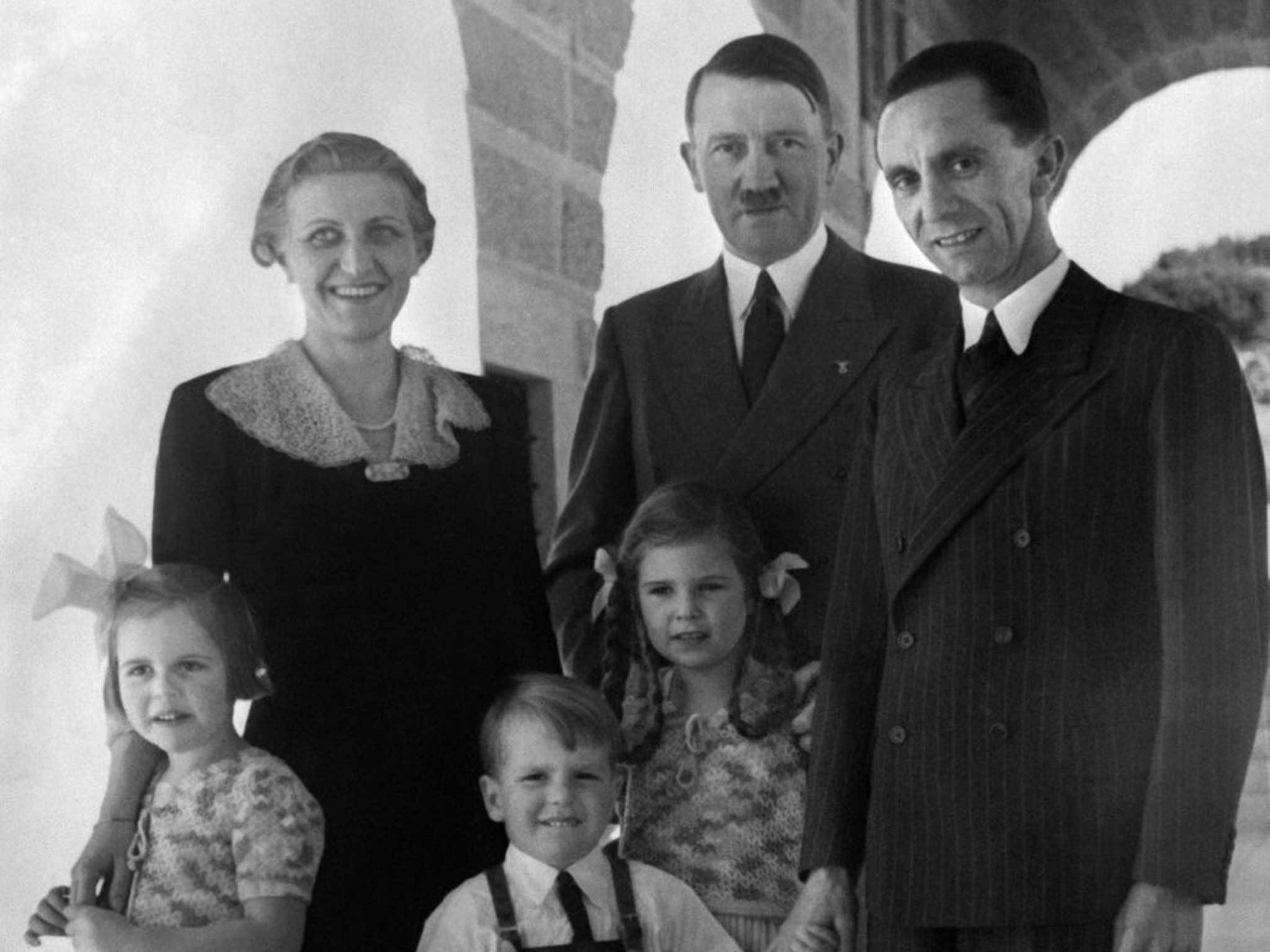
Your support helps us to tell the story
From reproductive rights to climate change to Big Tech, The Independent is on the ground when the story is developing. Whether it's investigating the financials of Elon Musk's pro-Trump PAC or producing our latest documentary, 'The A Word', which shines a light on the American women fighting for reproductive rights, we know how important it is to parse out the facts from the messaging.
At such a critical moment in US history, we need reporters on the ground. Your donation allows us to keep sending journalists to speak to both sides of the story.
The Independent is trusted by Americans across the entire political spectrum. And unlike many other quality news outlets, we choose not to lock Americans out of our reporting and analysis with paywalls. We believe quality journalism should be available to everyone, paid for by those who can afford it.
Your support makes all the difference.While you don’t expect to enjoy a biography of a Nazi leader, reading Peter Longerich’s lengthy biography of Joseph Goebbels is a grueling experience. This is partly because Longerich’s prose, translated from German by three people, sometimes tends towards the turgid. But the main reason is the repellant nature of Goebbels himself.
While other leading Nazis are hardly any more admirable, in Goebbels case you are confronted much more directly with his repugnance. The reason is the diary that he kept from 1924 until a couple of weeks before his suicide on 1 May 1945. Although previous biographies have quoted from the diary, it was only published in full in 2006. The constant and lengthy quotation from the diary - so extensive that Goebbels’ estate has, outrageously, demanded royalties from the publisher, who has so far refused to pay – means that the reader cannot avoid a visceral engagement with Goebbels’ personality.
Goebbels' diary voice is never more unpleasant than in its hectoring antisemitism, based as it is on a lethal combination of deluded paranoia and sheer hate. Here for instance is his judgement on the 'final solution', on which he was briefed in March 1942: 'A judgement is being carried out on the Jews that is barbaric but thoroughly deserved...There must be no sentimentality in these matters. If we didn't ward them off, the Jews would annihilate us...No other government and no other regime could produce the strength to solve this questions.'
Of course, that doesn’t mean that the diary is a simple reflection of Goebbels’ true nature. Rather, it is revealing as much for what it doesn’t say and for what it unintentionally reveals as much as what it does. Further, when viewed together with other sources, Goebbels’ view of his part in events can be compared with that of others.
Longerich argues that Goebbels had a ‘narcissistically disturbed personality’; a constant need for recognition and affirmation. When his early attempts as a writer failed to gain him the adoration he sought, he found what he was looking for in the far-right political milieu into which he drifted in 1923. Not only did he discover a talent for rhetoric, but in Adolf Hitler he found an ‘idol’ in whose admiration he could bask.
It is this love of Hitler, that runs through Goebbels’ rise from low-level party functionary in his hometown of Rheydt, to newspaper editor, rabble rouser and Gauleiter of Berlin, to Minister of Propaganda following the Nazi seizure of power in 1933, a position he held until his death.
The diary obsessively recounts the times where Hitler takes Goebbels into his confidence, praises him and acts as a friend. His position was almost entirely dependent on Hitler – he had no other political friends and was never part of a faction.
Hitler was also intimately involved in his marriage to Magda Quandt in1931. Magda adored Hitler as much as Goebbels did and the leader loved her in return (whether or not this love was ever sexual, Longerich does not say, although they often met alone). Hitler forbade them to separate in the late 1930s, following both their infidelities. Their joint suicide, that followed shortly after Hitler’s was the inevitable consequence of a world view that saw a life without him as unthinkable.
That isn’t to say though that Hitler was the beginning and end of Goebbels’ life. The diary does contain passages where his decisions are questioned and criticised. In any case, Goebbels sought affirmation from the wider German public as well as Hitler. Goebbels’ propaganda was a kind of self-enclosed system, in which he took great satisfaction in the adulation of the media that he himself was responsible for.
In this and much else, Longerich is keen to undermine Goebbels’ pretentions. Not only was the ‘success’ of his propaganda often debatable, Goebbels himself was never able to control the media as thoroughly as he wished and he was constantly dissatisfied with much of its output. As a Nazi politician he was generally not party to key decisions and Hitler clearly exploited his adulation. In other areas, as Gauleiter of Berlin and a leading advocate for ‘total war’ from 1943, he was unable to achieve lasting policy successes.
Yet at the same time, Goebbels’ energy and intelligence was still considerable and it is hard to think of the Nazi regime apart from him. What we are left with at the end of this often exhausting biography is a portrait of a man who encapsulates the duality at the heart of the Third Reich: a horrific bundle of evil and self-delusion bound up in an extraordinary ability to transform the world.
Join our commenting forum
Join thought-provoking conversations, follow other Independent readers and see their replies
Comments